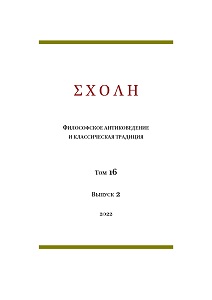Exact sciences and education in antiquity
Exact sciences and education in antiquity
Author(s): Leonid ZhmudSubject(s): Ancient World, Ancient Philosphy, Philosophy of Science, History of Education
Published by: Новосибирский государственный университет
Keywords: Greek science; history of exact sciences; post-school education in antiquity; enkyklios paideia; Plato; Isocrates;
Summary/Abstract: Teaching of mathēmata in the framework of enkyklios paideia, the post-school education of a “free man”, was a new social practice that originated in the fourth century BC and greatly contributed to the growing public acceptance of science. Due to this educational practice that became common during the Hellenistic period many young men from wealthy families who took the course of enkyklios paideia, received instruction in the four mathēmata: geometry, arithmetic, astronomy, and harmonics. Although the widespread use of this model of education coincided with the sudden quantitative and qualitative decline of Greek science in the first century BC, a considerable number of educated people from the higher strata of society were becoming familiar, albeit in varying degrees, with scientific knowledge and methods. Thus, mathēmata were ingrained in society to an extent that enabled them to survive, albeit with serious losses, the transition from antiquity to the Middle Ages, when the volume and quality of scientific knowledge drastically declined, and their preservation became part of the social role of the clergyman.
Journal: ΣΧΟΛΗ. Философское антиковедение и классическая традиция
- Issue Year: XVII/2023
- Issue No: 1
- Page Range: 226-243
- Page Count: 18
- Language: Russian

